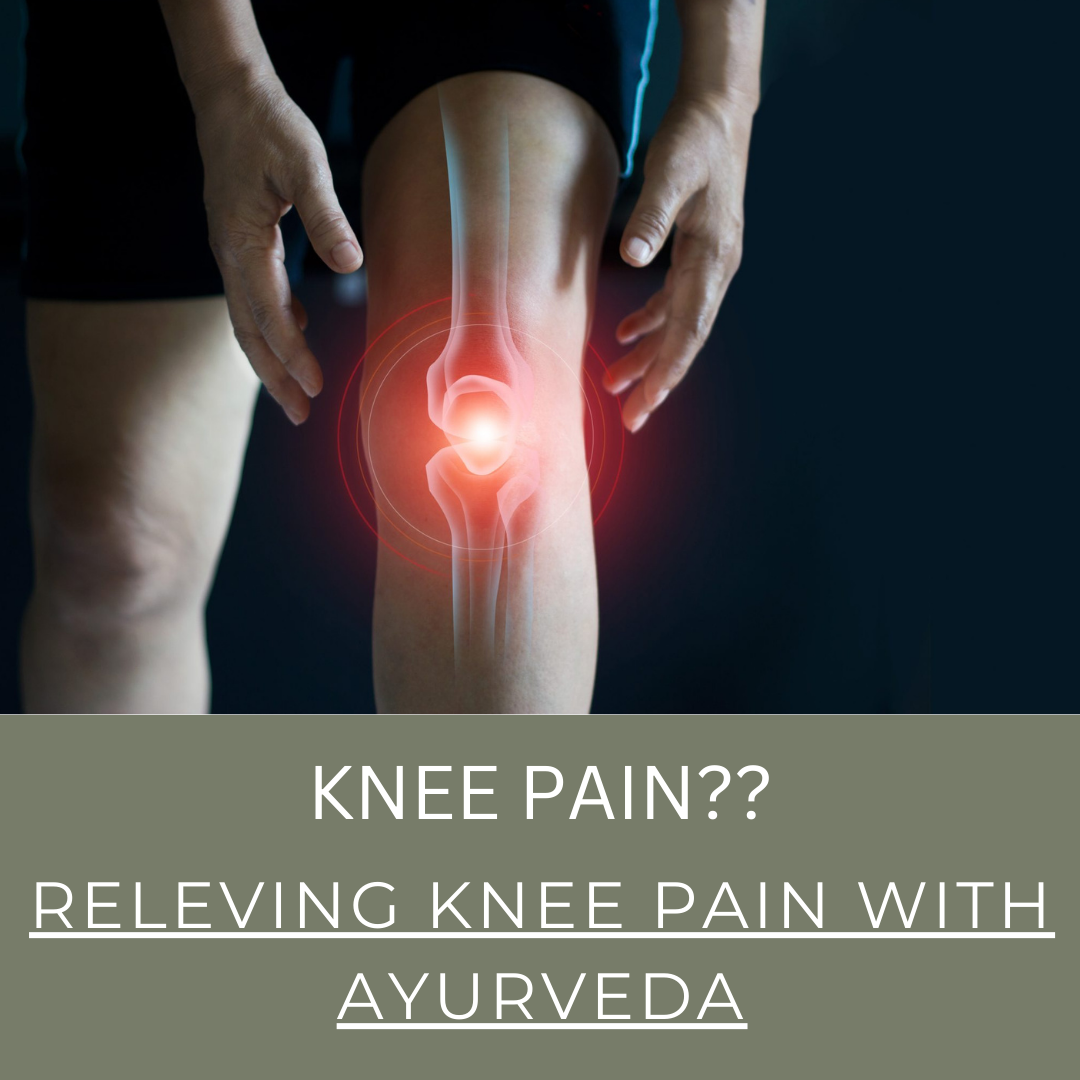Knee pain is a common ailment that affects people of all ages and can significantly impact one’s quality of life. Whether it’s due to an injury, arthritis, or overuse, the discomfort and limitation in mobility can be frustrating. While conventional treatments like pain relievers and surgery are available, Ayurveda, the ancient Indian system of medicine, offers a holistic approach to managing and treating knee pain. In this blog, we will explore the causes of knee pain, Ayurvedic principles behind it, and natural treatments to find lasting relief.
Understanding Knee Pain in Ayurveda:
In Ayurveda, knee pain is often attributed to an imbalance in the Vata dosha, which represents the elements of air and ether. When Vata is aggravated, it can cause dryness, stiffness, and pain in the joints. However, other doshas can also play a role, especially in cases where inflammation is present, such as in rheumatoid arthritis.
Common Causes of Knee Pain:
- Osteoarthritis: This is the most common form of arthritis and occurs when the protective cartilage that cushions the ends of the bones wears down over time.
- Rheumatoid Arthritis: An autoimmune disorder where the body’s immune system attacks the synovial (lining of the membranes that surround the joints), causing pain and inflammation.
- Injuries: Knee injuries, such as ligament tears (ACL or MCL) or meniscus tears, can lead to chronic knee pain.
- Overuse: Repetitive strain on the knee joint, often seen in athletes and individuals with physically demanding jobs, can result in pain and discomfort.
Ayurvedic Treatments for Knee Pain:
Ayurveda emphasizes on treating the root cause, so first (@ Ayurvidhi Clinic) we diagnose according to Ayurvedic way by taking detailed case history. As per it by making final Diagnosis we start treatment as per dosha and the disease.
- Diet and Nutrition: Ayurveda emphasizes the importance of a balanced diet to maintain healthy joints. Foods rich in anti-inflammatory properties, such as ginger, turmeric, and garlic, can help reduce knee pain. Ghee (clarified butter) is also beneficial for lubricating the joints.
- Herbal Remedies: Ayurvedic herbs like Ashwagandha, Dashamool, Guggul are known for their anti-inflammatory and pain-relieving properties. They can be consumed in various forms, including capsules, tablets or as part of Ayurvedic formulations.
- Massage and Other Therapy: Abhyanga, (the practice of self-massage with warm herbal oils) can alleviate knee pain. Mahanarayan oil, which contains a blend of herbs, is commonly used for joint pain relief. Few other treatments like Pottali Massage, Janu Basti (putting oil on the knee for specific timing) helps to relieve the pain also helps in painless movement of the joint.
- Basti: A course of basti helps to elevate the pain of knee by providing the nourishment and keeping the Vaata doshas in check which is a major cause for Knee pain.
Treatment and medicine mentioned above are only for the purpose of information please consult to your Ayurveda Doctor before consuming any ayurvedic medicine.
At Ayurvidhi Clinic (Ayurveda Panchakarma Treatment Centre) we provide best ayurvedic & panchakarma treatment for knee pain and other joint pain problem.





